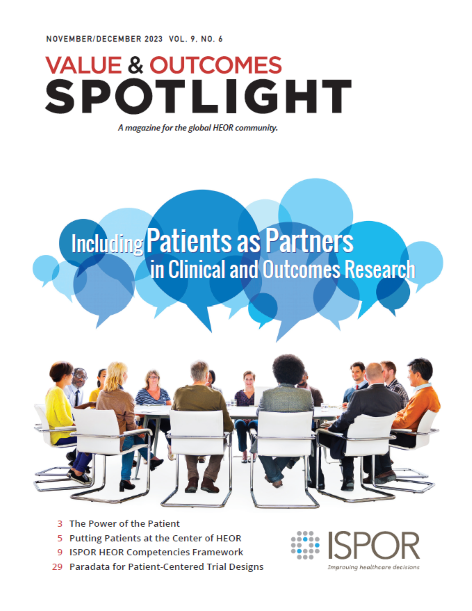HEOR News
 Confronting High Costs and Clinical Uncertainty: Innovative Payment Models for Gene Therapies (Health Affairs)
Confronting High Costs and Clinical Uncertainty: Innovative Payment Models for Gene Therapies (Health Affairs)
In looking at how to pay for expensive gene therapies, researchers developed a taxonomy of possible payment mechanisms, including installments, risk pools, reinsurance, price-volume agreements, expenditure caps, subscriptions, outcomes-based payments and rebates, warranties, population outcomes-based agreements, and coverage with evidence development. The researchers then discuss each payment model, its advantages and challenges, and considerations for US payers.
Read more
 A Systematic Review of COVID-19 Misinformation Interventions: Lessons Learned (Health Affairs)
A Systematic Review of COVID-19 Misinformation Interventions: Lessons Learned (Health Affairs)
Researchers looked at 50 papers evaluating the effectiveness of misinformation interventions by governments, public health authorities, and social media platforms during the COVID-19 pandemic and conclude that more public health experts need to be included in intervention design and to develop a health misinformation typology; agreed-upon outcome measures; and more global, more longitudinal, more video-based, and more platform-diverse studies.
Read more
 Can Postmarket Evidence Generation Be Streamlined? FDA-Commissioned Report Proposes Solutions (Endpoints News)
Can Postmarket Evidence Generation Be Streamlined? FDA-Commissioned Report Proposes Solutions (Endpoints News)
The Reagan-Udall Foundation says the US Food and Drug Administration’s (FDA) postmarket evidence-generation system is too complicated and expensive. The foundation is recommending that the FDA lead an interagency task force, composed of members from the National Institutes of Health, Centers for Medicare & Medicaid Services, and the Office of the National Coordinator for Health Information Technology to establish guidelines for postmarket evidence-generation standards.
Read more
 A Third of Nurses Report Witnessing Patients Die Due to Staff Shortages, New Global Survey Finds (Euronews.next)
A Third of Nurses Report Witnessing Patients Die Due to Staff Shortages, New Global Survey Finds (Euronews.next)
In a survey of 2000 healthcare workers, a third of frontline nurses have had patients die in their care due to staff shortages, and more than half of respondents said they regularly think about quitting and have raised concerns about the state of their countries’ health systems.
Read more
 2023 March of Dimes Report Card Shows Modest Improvement in US Preterm Birth Rate, Which Remains at Decade-Long High, Earning Nation D+ Grade
2023 March of Dimes Report Card Shows Modest Improvement in US Preterm Birth Rate, Which Remains at Decade-Long High, Earning Nation D+ Grade
(March of Dimes)
According to the 2023 report, the US preterm birth rate remains alarmingly high with data revealing persistent racial disparities across key maternal and infant health indicators, making the United States among the most dangerous developed nations for childbirth.
Read more
 WHO Issues New and Updated Recommendations on Treatment of Mental, Neurological, and Substance Use Conditions (World Health Organization)
WHO Issues New and Updated Recommendations on Treatment of Mental, Neurological, and Substance Use Conditions (World Health Organization)
The World Health Organization (WHO) has published the third edition of the Mental Health Gap Action Program, which includes 30 updated and 18 new recommendations related to mental, neurological, and substance use conditions, alongside 90 pre-existing recommendations.
Read more
 NICE Draft Updated Guideline Recommends More Treatment Choices for Menopause Symptoms (NICE)
NICE Draft Updated Guideline Recommends More Treatment Choices for Menopause Symptoms (NICE)
The organization says cognitive behavioral therapy can help reduce menopause symptoms, including hot flushes and night sweats, depressive symptoms, and problems sleeping. The new guideline also outlines the risks and benefits of hormone replacement therapy.
Read more
 Survey Reveals Impractical Working Conditions in Healthcare Reason Behind Shortage of Staff
Survey Reveals Impractical Working Conditions in Healthcare Reason Behind Shortage of Staff
(Hindustan Times)
According to the Medico Legal Society of India, an association of doctors and medico-legal experts, impractical working conditions such as inadequate staff, infrastructure, and supply of essential medicines are the prime reasons behind doctors’ unwillingness to work in the public healthcare sector. Read more
 WHO Launches Commission to Foster Social Connection (World Health Organization)
WHO Launches Commission to Foster Social Connection (World Health Organization)
WHO has announced a new Commission on Social Connection, which will analyze the central role social connection plays in improving health for people of all ages and outline solutions to build social connections at scale.
Read more
 WHO Releases Priorities for Research and Development of Age-Appropriate Medicines for Treatment of Neglected Tropical Diseases (World Health Organization)
WHO Releases Priorities for Research and Development of Age-Appropriate Medicines for Treatment of Neglected Tropical Diseases (World Health Organization)
The World Health Organization (WHO) has identified priority pediatric formulations for 5 neglected tropical diseases—human African trypanosomiasis, onchocerciasis, scabies, schistosomiasis, and visceral leishmaniasis—to target research and development in addressing the specific needs of infants and children.
Read more

